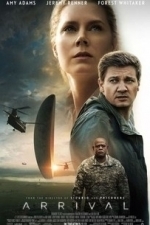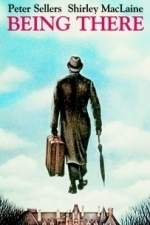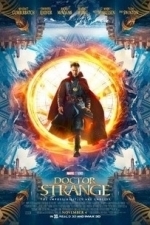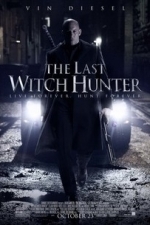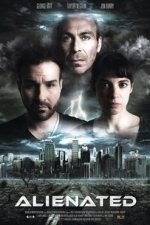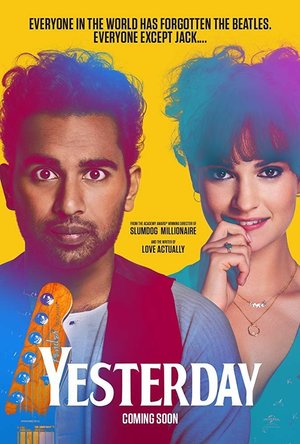Search
Search results
Movie Metropolis (309 KP) rated Arrival (2016) in Movies
Jun 11, 2019
Thrilling from start to finish
Sci-fi seems to be having somewhat of a renaissance recently, that is, if you don’t count Independence Day: Resurgence which could’ve easily derailed the whole genre, never mind just the franchise.
What with last year’s The Martian, the rebirth of Star Wars and the upcoming Passengers, sci-fi is really getting its mojo back. The subject of this review, Arrival, has been hailed as a masterpiece across the Atlantic. But is it worthy of such a strong adjective?
From the director of Prisoners and Sicario; Arrival is not only one of the best sci-fi films of the last year, it’s up there with the genre’s greatest assets. We’re talking a Close Encounters level of good.
Linguistics professor Louise Banks (Amy Adams) leads an elite team of investigators when humongous spaceships touch down in 12 locations around the world. As nations teeter on the verge of global war, Banks and her crew must race against time to find a way to communicate with the extra-terrestrial visitors. Hoping to unravel the mystery, she takes a chance that could threaten her life and quite possibly all of mankind.
Amy Adams leads a pleasing cast that includes commanding turns from Forest Whitaker and Jeremy Renner but it is in our female protagonist that we find the most joy. Adams is fast becoming one of Hollywood’s best actresses and her complex character is superbly written and incredibly well acted.
Elsewhere, the cinematography is truly exceptional with the alien craft taking a backseat to sweeping landscapes from across the world. The focal point of the film, a lush and open Montana valley is filmed to a breath-taking standard especially during Arrival’s opening sequences.
When it comes to special effects, director Denis Villeneuve doesn’t bombard the audience with constant CGI, instead opting for a laidback approach. Even the aliens themselves are understated in their appearance. It’s also fair to say that the film is a slow-burner with very little in the way of action – though it manages to stay well-clear of becoming tedious.
In spite of all this though, Arrival’s greatest strength is its story. This is thinking person’s sci-fi that somehow manages to cement its themes with an emotional heft of gravitational proportions. Throughout the 114 minute running time, we’re constantly reminded of our characters and where it is they come from, something missing from the majority of mass-market blockbusters these days.
Overall, Arrival is more than worthy of an adjective like masterpiece. From it’s incredible story and beautiful cinematography to what is Amy Adams’ best performance to date, it’s a new classic for the sci-fi genre and well worth a watch.
https://moviemetropolis.net/2016/11/11/thrilling-from-start-to-finish-arrival-review/
What with last year’s The Martian, the rebirth of Star Wars and the upcoming Passengers, sci-fi is really getting its mojo back. The subject of this review, Arrival, has been hailed as a masterpiece across the Atlantic. But is it worthy of such a strong adjective?
From the director of Prisoners and Sicario; Arrival is not only one of the best sci-fi films of the last year, it’s up there with the genre’s greatest assets. We’re talking a Close Encounters level of good.
Linguistics professor Louise Banks (Amy Adams) leads an elite team of investigators when humongous spaceships touch down in 12 locations around the world. As nations teeter on the verge of global war, Banks and her crew must race against time to find a way to communicate with the extra-terrestrial visitors. Hoping to unravel the mystery, she takes a chance that could threaten her life and quite possibly all of mankind.
Amy Adams leads a pleasing cast that includes commanding turns from Forest Whitaker and Jeremy Renner but it is in our female protagonist that we find the most joy. Adams is fast becoming one of Hollywood’s best actresses and her complex character is superbly written and incredibly well acted.
Elsewhere, the cinematography is truly exceptional with the alien craft taking a backseat to sweeping landscapes from across the world. The focal point of the film, a lush and open Montana valley is filmed to a breath-taking standard especially during Arrival’s opening sequences.
When it comes to special effects, director Denis Villeneuve doesn’t bombard the audience with constant CGI, instead opting for a laidback approach. Even the aliens themselves are understated in their appearance. It’s also fair to say that the film is a slow-burner with very little in the way of action – though it manages to stay well-clear of becoming tedious.
In spite of all this though, Arrival’s greatest strength is its story. This is thinking person’s sci-fi that somehow manages to cement its themes with an emotional heft of gravitational proportions. Throughout the 114 minute running time, we’re constantly reminded of our characters and where it is they come from, something missing from the majority of mass-market blockbusters these days.
Overall, Arrival is more than worthy of an adjective like masterpiece. From it’s incredible story and beautiful cinematography to what is Amy Adams’ best performance to date, it’s a new classic for the sci-fi genre and well worth a watch.
https://moviemetropolis.net/2016/11/11/thrilling-from-start-to-finish-arrival-review/
Phillip McSween (751 KP) rated Being There (1979) in Movies
Mar 26, 2018
Decent
A gardener with no professional skills has to strike out on his own when the owner of his estate dies.
Acting: 10
Beginning: 4
Being There gets off to an extremely slow start and I think it has more to do with expectations than anything. I don't know what exactly I was looking for, but it seemed as if the film started out laying the groundwork for what was to come, but it was trying to feel its way into the story. If your film is going to be over two hours long, it should be because there is a lot of meat in the film, not because its got a slow start latched on to it.
Characters: 10
Cinematography/Visuals: 0
For the life of me, I can't remember not one memorable shot in this film. Not a single solitary one. Believe me, I sat on this for quite a few minutes trying to remember something, anything that stood out for me. Nothing. For main character Chance (Peter Sellers) to have been a gardener, we never got to see him working his craft in one of the rich, extravagant gardens. Nothing doing.
Conflict: 4
There's not a lot of friction in the conflict, but it is fun to watch as things unfold. You know it's only a matter of time before someone uncovers the truth of what's going on with Chance, but every scene that passes where he comes out unscathed is absolutely confounding. There are never any real stakes, however, hence the lower score.
Genre: 8
When it comes to dramas, I consider Being There, highly original. It feels like Forrest Gump mixed in with a ton of political satire. It stares the norm in the face and completely breaks the mold.
Memorability: 6
While the visuals were absolutely forgettable, the film did have some solid memorable moments that stood out. In one particular scene, Chance is having a dinner conversation with Benjamin Rand (Melvyn Douglas) about the "room upstairs". Ben thinks they're talking about heaven when Chance is literally talking about the room upstairs.
Pace: 8
Once the film can get out of its own way in the beginning, it definitely managed to hold my attention with a solid pace. I was so entertained by Chance that things never really got slow again for me. His actions and presence alone kept me engaged.
Plot: 9
Resolution: 10
Overall: 69
I was rooting for Being There to be better but there were just a handful of pitfalls that kept it well short of getting an all-time rating. With solid characters that were highly entertaining, I wish it would have gotten out of the gates stronger, among other things. For me, the film is a skippable one.
Acting: 10
Beginning: 4
Being There gets off to an extremely slow start and I think it has more to do with expectations than anything. I don't know what exactly I was looking for, but it seemed as if the film started out laying the groundwork for what was to come, but it was trying to feel its way into the story. If your film is going to be over two hours long, it should be because there is a lot of meat in the film, not because its got a slow start latched on to it.
Characters: 10
Cinematography/Visuals: 0
For the life of me, I can't remember not one memorable shot in this film. Not a single solitary one. Believe me, I sat on this for quite a few minutes trying to remember something, anything that stood out for me. Nothing. For main character Chance (Peter Sellers) to have been a gardener, we never got to see him working his craft in one of the rich, extravagant gardens. Nothing doing.
Conflict: 4
There's not a lot of friction in the conflict, but it is fun to watch as things unfold. You know it's only a matter of time before someone uncovers the truth of what's going on with Chance, but every scene that passes where he comes out unscathed is absolutely confounding. There are never any real stakes, however, hence the lower score.
Genre: 8
When it comes to dramas, I consider Being There, highly original. It feels like Forrest Gump mixed in with a ton of political satire. It stares the norm in the face and completely breaks the mold.
Memorability: 6
While the visuals were absolutely forgettable, the film did have some solid memorable moments that stood out. In one particular scene, Chance is having a dinner conversation with Benjamin Rand (Melvyn Douglas) about the "room upstairs". Ben thinks they're talking about heaven when Chance is literally talking about the room upstairs.
Pace: 8
Once the film can get out of its own way in the beginning, it definitely managed to hold my attention with a solid pace. I was so entertained by Chance that things never really got slow again for me. His actions and presence alone kept me engaged.
Plot: 9
Resolution: 10
Overall: 69
I was rooting for Being There to be better but there were just a handful of pitfalls that kept it well short of getting an all-time rating. With solid characters that were highly entertaining, I wish it would have gotten out of the gates stronger, among other things. For me, the film is a skippable one.
Gareth von Kallenbach (980 KP) rated the PC version of LEGO DC Super-Villains in Video Games
Jun 19, 2019
Warner Bros. Interactive Entertainment and Lego have teamed up again to make yet another winning entry into their Lego series of games with Lego DC Super Villains.
I got an early look at the game at E3 and San Diego Comic Con including a visit with one of the Producers as well as an interview with key members of the voice cast so I was happy to have a more well-rounded perspective of what to expect going into the final release of the game. My staff played it at PAX West and were very impressed with it as well which only lead to the anticipation to try the final game.
The game allows players to craft their own villain using the easy to use and fun character creator as you enter the world of DC in order to deliver menace.
Iconic characters ranging from Lex Luthor to Captain Cold, Cheetah, Harley Quin, The Joker, and countless others are available to play and each has their own unique set of abilities. Players can switch between character sets in a mission as the puzzles often require specific abilities to complete. Lex Luthor may have some impressive firepower with his power suit, but when agility and climbing are required you will need to have other options.
Missions are fun and ideal for gamers of all ages as defeating enemy’s results in a shower of Lego pieces which can often be used to construct items which are key to the success of a mission.
If you have ever played any of the Lego games released in the last few years; the open world setting and plethora of characters will seem familiar to you as well the family friendly fun the game will offer.
The game can be enjoyed as a co-op experience so playing with others is highly recommended as the puzzles often require a mix of action and thought to resolve.
I would suggest getting the game on one of the console platforms as I played it on a PC after playing it on consoles at conventions and I had a few issues playing on the PC from control response to some video issues.
The game offers bright and fun graphics and the sound of the game is punctuated by a top-notch voice cast who will be very familiar with fans of many of the animated DC offerings.
The game will have future DLC available which will allow even more characters to become available and increase the fun and variety of the game.
If you are a fan of Lego or DC; you will not want to miss this one.
http://sknr.net/2018/11/05/lego-dc-super-villains/
I got an early look at the game at E3 and San Diego Comic Con including a visit with one of the Producers as well as an interview with key members of the voice cast so I was happy to have a more well-rounded perspective of what to expect going into the final release of the game. My staff played it at PAX West and were very impressed with it as well which only lead to the anticipation to try the final game.
The game allows players to craft their own villain using the easy to use and fun character creator as you enter the world of DC in order to deliver menace.
Iconic characters ranging from Lex Luthor to Captain Cold, Cheetah, Harley Quin, The Joker, and countless others are available to play and each has their own unique set of abilities. Players can switch between character sets in a mission as the puzzles often require specific abilities to complete. Lex Luthor may have some impressive firepower with his power suit, but when agility and climbing are required you will need to have other options.
Missions are fun and ideal for gamers of all ages as defeating enemy’s results in a shower of Lego pieces which can often be used to construct items which are key to the success of a mission.
If you have ever played any of the Lego games released in the last few years; the open world setting and plethora of characters will seem familiar to you as well the family friendly fun the game will offer.
The game can be enjoyed as a co-op experience so playing with others is highly recommended as the puzzles often require a mix of action and thought to resolve.
I would suggest getting the game on one of the console platforms as I played it on a PC after playing it on consoles at conventions and I had a few issues playing on the PC from control response to some video issues.
The game offers bright and fun graphics and the sound of the game is punctuated by a top-notch voice cast who will be very familiar with fans of many of the animated DC offerings.
The game will have future DLC available which will allow even more characters to become available and increase the fun and variety of the game.
If you are a fan of Lego or DC; you will not want to miss this one.
http://sknr.net/2018/11/05/lego-dc-super-villains/
Gareth von Kallenbach (980 KP) rated Doctor Strange (2016) in Movies
Jun 19, 2019
Doctor Stephan Strange (Benedict Cumberbatch), is a man of extremes. He is a brilliant and gifted surgeon who makes the impossible seem routine, but is also a self –centered egomaniac that spends money almost as fast as he makes it.
When a freak car accident deprives him of the use of his hands, his life spirals into self-pity and rage as he is no longer able to earn money at his profession nor accumulate the praise and accolades he has become accustomed to.
When one treatment after another fails to achieve any desired results and only serves to further deplete his dwindling resources, Strange heads to Nepal in search of a locale where a paraplegic was reported to make a full recovery after a visit. Although highly skeptical and arrogant, Strange is eventually taken in by The Ancient One (Tilda Swinton) who leads an order who protects Earth from other dimensions that would destroy all life as we know it.
Strange begins training in spells and archaic knowledge and in time becomes skilled at his craft although highly unwilling to get behind the true nature of his order as he sees his study as little more than a means to restore his hands and regain his former career.
When a rogue member of the order named Kaecillius (Mads Mikkelsen), and his followers begin a series of attacks designed to destroy the safeguards of Earth and bring a being of evil to earth from another dimension, Strange is forced into action and soon learns that the universe and the multiverse is threatened forcing him to reexamine his life and place in the grand scheme of things.
What follows is a thrilling adventure spanning multiple dimensions and the streets of London, New York and Hong Kong as Strange battles to save the day.
Marvel Studios has once again proved they have the Midas touch when it comes to their properties. Cumberbatch embodies the Doctor so well that he is a captivating and complex character who like many of the best Marvel characters is also a deeply flawed individual at his core.
Swinton does great work in her role as do Rachel McAdams, Chiwetel Ejiofor, and Benedict Wong in their supporting roles.
The film does take some time getting to the action but Director Scott Derrickson allows his characters the time to establish their history, relationships with one another, and the setting before getting to the very impressive effects and action.
There are two scenes during the credits that set the stage very well for future adventures for the Doctor as Marvel continues to weave their complex tapestry of characters into their ever expanding universe.
http://sknr.net/2016/11/02/doctor-stange/
When a freak car accident deprives him of the use of his hands, his life spirals into self-pity and rage as he is no longer able to earn money at his profession nor accumulate the praise and accolades he has become accustomed to.
When one treatment after another fails to achieve any desired results and only serves to further deplete his dwindling resources, Strange heads to Nepal in search of a locale where a paraplegic was reported to make a full recovery after a visit. Although highly skeptical and arrogant, Strange is eventually taken in by The Ancient One (Tilda Swinton) who leads an order who protects Earth from other dimensions that would destroy all life as we know it.
Strange begins training in spells and archaic knowledge and in time becomes skilled at his craft although highly unwilling to get behind the true nature of his order as he sees his study as little more than a means to restore his hands and regain his former career.
When a rogue member of the order named Kaecillius (Mads Mikkelsen), and his followers begin a series of attacks designed to destroy the safeguards of Earth and bring a being of evil to earth from another dimension, Strange is forced into action and soon learns that the universe and the multiverse is threatened forcing him to reexamine his life and place in the grand scheme of things.
What follows is a thrilling adventure spanning multiple dimensions and the streets of London, New York and Hong Kong as Strange battles to save the day.
Marvel Studios has once again proved they have the Midas touch when it comes to their properties. Cumberbatch embodies the Doctor so well that he is a captivating and complex character who like many of the best Marvel characters is also a deeply flawed individual at his core.
Swinton does great work in her role as do Rachel McAdams, Chiwetel Ejiofor, and Benedict Wong in their supporting roles.
The film does take some time getting to the action but Director Scott Derrickson allows his characters the time to establish their history, relationships with one another, and the setting before getting to the very impressive effects and action.
There are two scenes during the credits that set the stage very well for future adventures for the Doctor as Marvel continues to weave their complex tapestry of characters into their ever expanding universe.
http://sknr.net/2016/11/02/doctor-stange/
Gareth von Kallenbach (980 KP) rated The Last Witch Hunter (2015) in Movies
Jun 19, 2019
Over 800 years ago, a group of warriors and Clergy set off on a journey to destroy a witch and her minions in her lair. The witch had unleashed a plague upon the human race and she was determined to wipe them from the face of the planet.
During the battle, the witch is defeated but with her dying breath, she curses the one who vanquished her to a life of eternity, destined to be alone and never know peace.
Flash forward to modern day New York, and we find that man is now an elite Witch Hunter named Kaulder (Vin Diesel), who toils his trade working for a group who along with Witches maintain the peace. The Witches promise not to practice their craft against humans and in turn they are left alone. But when one does not follow the rules or is a threat to humanity, Kaulder and his ability to heal from injury via his immortality is dispatched to dispense justice.
When his Dolan (Michael Caine) is found dead the day after he retires, Koulder and his new Dolan (Elijah Wood), set out to find the Witch who is responsible which in turn leads to a discovery that his former Dolan is not dead but deeply cursed. In a race against time, Koulder must find the Witch who issues the curse and make an uneasy alliance with a witch named Chloe (Rose Leslie) to get to the bottom of a mystery darker and more deadly than they could have ever imagined.
One would think with the presence of Diesel and the interesting premise of the film, “The Last Witch Hunter”, would be more than it is. The film sadly plods along and has no real tension or surprises and at times, plays out more like a direct to DVD release or something one would find on cable late at night. I think the presence of Diesel is what got the film a theatrical release but one would hope with such a fine supporting cast it would have been better.
That is not to say the film is bad, as it was better than I thought it would be, but sadly as it went along, it simply failed to deliver on the potential of the premise.
In many ways I see this like “Hansel and Gretel” in that it will likely play better to the foreign market but after the total box office, DVD, and Pay Per View are factored in, do not be shocked if a second outing for the characters arrives someday as Diesel has shown a fondness for franchise characters.
For now the film is a decent distraction and offers entertainment as long as you set your expectations accordingly.
http://sknr.net/2015/10/23/the-last-witch-hunter/
During the battle, the witch is defeated but with her dying breath, she curses the one who vanquished her to a life of eternity, destined to be alone and never know peace.
Flash forward to modern day New York, and we find that man is now an elite Witch Hunter named Kaulder (Vin Diesel), who toils his trade working for a group who along with Witches maintain the peace. The Witches promise not to practice their craft against humans and in turn they are left alone. But when one does not follow the rules or is a threat to humanity, Kaulder and his ability to heal from injury via his immortality is dispatched to dispense justice.
When his Dolan (Michael Caine) is found dead the day after he retires, Koulder and his new Dolan (Elijah Wood), set out to find the Witch who is responsible which in turn leads to a discovery that his former Dolan is not dead but deeply cursed. In a race against time, Koulder must find the Witch who issues the curse and make an uneasy alliance with a witch named Chloe (Rose Leslie) to get to the bottom of a mystery darker and more deadly than they could have ever imagined.
One would think with the presence of Diesel and the interesting premise of the film, “The Last Witch Hunter”, would be more than it is. The film sadly plods along and has no real tension or surprises and at times, plays out more like a direct to DVD release or something one would find on cable late at night. I think the presence of Diesel is what got the film a theatrical release but one would hope with such a fine supporting cast it would have been better.
That is not to say the film is bad, as it was better than I thought it would be, but sadly as it went along, it simply failed to deliver on the potential of the premise.
In many ways I see this like “Hansel and Gretel” in that it will likely play better to the foreign market but after the total box office, DVD, and Pay Per View are factored in, do not be shocked if a second outing for the characters arrives someday as Diesel has shown a fondness for franchise characters.
For now the film is a decent distraction and offers entertainment as long as you set your expectations accordingly.
http://sknr.net/2015/10/23/the-last-witch-hunter/
Darren (1599 KP) rated Alienated (2016) in Movies
Jun 20, 2019
Story: Alienated starts as we follow married couple Nate (Katt) & Paige (Burry) as they go about their everyday lives, we see the ups and downs in their communication which every couple has. When Nate believes he sees a space craft and Paige brushes off Nate’s request to watch the video leading to a fight between the two. We see how they have to rebuild their friendship and whether Paige wants to believe Nate did really see a spacecraft.
Alienated gives us a very interesting drama that bottles down to what people want to believe when a loved one believes in something. I will admit that I was expecting more sci-fi element involved as this while very entertaining follows only the conversations between the couple. This showed how to make an ultra-interesting film between the characters giving them a natural feel throughout.
Actor Review
George Katt: Nate is an artist meaning he spends most of his time at home, he is a conspiracy theorist making him believe. He has a smaller social circle compared to his wife and once he believes he sees a spacecraft the relationship with his wife is pushed to the limits as they deal with what is real. George is great in this role as we
Jen Burry: Paige is the successful business woman who comes home everyday to her husband Nate who can easily be pushed into believing in many different conspiracies. She wants to be noticed more by her husband instead of dealing with his theories on a daily basis. Jen is great in this role showing great chemistry with George.
Taylor Negron: Griffin is the neighbour of the couple, he comes off very strange but we don’t see too much of the character. Taylor is good giving us mystery about the character.
Director Review: Brian Ackley – Brian gives us one of the most interesting story driven film of the year.
Thriller: Alienated keeps us on edge as we wait to see what is the truth throughout.
Settings: Alienated keeps the setting in the home of the couple showing how this could come off as an everyday conversation but it could also be something bigger.
Suggestion: Alienated is one to try, I do think the casual fans might find this slightly hard to enjoy but once you start you just don’t want to stop. (Try It)
Best Part: Natural feeling throughout.
Worst Part: Not everything you think it will be.
Believability: No
Chances of Tears: No
Chances of Sequel: No
Post Credits Scene: No
Oscar Chances: No
Runtime: 1 Hour 21 Minutes
Overall: Very interesting thriller that takes away the action only to give us an engrossing story.
https://moviesreview101.com/2016/02/25/alienated-2015/
Alienated gives us a very interesting drama that bottles down to what people want to believe when a loved one believes in something. I will admit that I was expecting more sci-fi element involved as this while very entertaining follows only the conversations between the couple. This showed how to make an ultra-interesting film between the characters giving them a natural feel throughout.
Actor Review
George Katt: Nate is an artist meaning he spends most of his time at home, he is a conspiracy theorist making him believe. He has a smaller social circle compared to his wife and once he believes he sees a spacecraft the relationship with his wife is pushed to the limits as they deal with what is real. George is great in this role as we
Jen Burry: Paige is the successful business woman who comes home everyday to her husband Nate who can easily be pushed into believing in many different conspiracies. She wants to be noticed more by her husband instead of dealing with his theories on a daily basis. Jen is great in this role showing great chemistry with George.
Taylor Negron: Griffin is the neighbour of the couple, he comes off very strange but we don’t see too much of the character. Taylor is good giving us mystery about the character.
Director Review: Brian Ackley – Brian gives us one of the most interesting story driven film of the year.
Thriller: Alienated keeps us on edge as we wait to see what is the truth throughout.
Settings: Alienated keeps the setting in the home of the couple showing how this could come off as an everyday conversation but it could also be something bigger.
Suggestion: Alienated is one to try, I do think the casual fans might find this slightly hard to enjoy but once you start you just don’t want to stop. (Try It)
Best Part: Natural feeling throughout.
Worst Part: Not everything you think it will be.
Believability: No
Chances of Tears: No
Chances of Sequel: No
Post Credits Scene: No
Oscar Chances: No
Runtime: 1 Hour 21 Minutes
Overall: Very interesting thriller that takes away the action only to give us an engrossing story.
https://moviesreview101.com/2016/02/25/alienated-2015/
James P. Sumner (65 KP) rated Yesterday (2019) in Movies
Jul 18, 2019
The best British film in years!
Despite not really being a fan of The Beatles or their music, when I first saw the trailer for this at the start of the year, I was genuinely intrigued by the concept. An aspiring musician (and huge Beatles fan) is hit by a bus during an inexplicable global blackout, only to wake up to a world in which The Beatles seemingly never existed. As the only one who remembers their songs, he releases them as his own and conquers the music world.
The trailer did a good job of letting you know what to expect without giving too much away, believe it or not. There are a few twists and turns along the way, which were a nice surprise. Ultimately, this IS a British rom-com underneath it all, and the final third is as predictable as every other film in the genre.
Yet this film oozes charm and whimsicality, and sets itself apart from everything that's come before it. Say what you want about Love Actually, but for me, that was the last British film to really make a splash on this level - which was 16 years ago!
The script is amazing. No scene feels unnecessary. No dialogue feels pointless. Richard Curtis, yet again, proves he's a true master of his craft. The lead roles are perfectly cast. Lily James, in particular, puts in another great performance, showing she's worthy of more heavyweight roles (although she's definitely found her niche in this type of film).
What I really loved about this film was how thought-provoking it was. Relative newcomer, Himesh Patel's portrayal of Jack Malek is spot-on, playing with your own emotions and morals, forcing you to ask yourself if you could remain as grounded and humble as he did if something like this happened to you. Despite being over the top at times, it all felt surprisingly real. I can imagine this is exactly how it would play out if something like this were to happen to someone - the media frenzy, the explosion of popularity online, the whirlwind of life-changing moments...
The film is about big moments in your life, and what you choose to do with them when they happen. It's about chasing your dreams and what you would do if you caught them. It's about how to follow your heart when it wants two things at once. I left the cinema smiling, but also genuinely thinking about my entire outlook on life.
Danny Boyle has done an excellent job with this film, and it deserves to go down as one of the best British films in recent years. Whether you're a fan of the music or not, this should not be missed. Near perfect!
The trailer did a good job of letting you know what to expect without giving too much away, believe it or not. There are a few twists and turns along the way, which were a nice surprise. Ultimately, this IS a British rom-com underneath it all, and the final third is as predictable as every other film in the genre.
Yet this film oozes charm and whimsicality, and sets itself apart from everything that's come before it. Say what you want about Love Actually, but for me, that was the last British film to really make a splash on this level - which was 16 years ago!
The script is amazing. No scene feels unnecessary. No dialogue feels pointless. Richard Curtis, yet again, proves he's a true master of his craft. The lead roles are perfectly cast. Lily James, in particular, puts in another great performance, showing she's worthy of more heavyweight roles (although she's definitely found her niche in this type of film).
What I really loved about this film was how thought-provoking it was. Relative newcomer, Himesh Patel's portrayal of Jack Malek is spot-on, playing with your own emotions and morals, forcing you to ask yourself if you could remain as grounded and humble as he did if something like this happened to you. Despite being over the top at times, it all felt surprisingly real. I can imagine this is exactly how it would play out if something like this were to happen to someone - the media frenzy, the explosion of popularity online, the whirlwind of life-changing moments...
The film is about big moments in your life, and what you choose to do with them when they happen. It's about chasing your dreams and what you would do if you caught them. It's about how to follow your heart when it wants two things at once. I left the cinema smiling, but also genuinely thinking about my entire outlook on life.
Danny Boyle has done an excellent job with this film, and it deserves to go down as one of the best British films in recent years. Whether you're a fan of the music or not, this should not be missed. Near perfect!
365Flicks (235 KP) rated Leopard (2016) in Movies
Nov 20, 2019
A Beautiful, Twisted, Dark, Intense and Mesmerizing tale of Betrayal, Violence and Heart Breaking Brotherly Love..
Anyone who listens to ourleopard5-1 Podcast knows that while Chris and myself love the fanfare of the Huge Blockbuster Marvel/DC/Star Wars releases. Well nothing can quite compare to the
smaller Independent Films that you just know every second of screen time came straight from one persons passion to make a piece of Cinema that is all there’s. A movie that can display such mastery of there craft and hit you square in the heart (or balls) and make you feel something that… In my opinion Capes and Spandex just cant do.
Leopard is available On Demand this month from Osiris Entertainment.
Leopard is exactly that type of movie. A true passion piece that is driven by the wonderfully carefully calculated mind of its Writer/Director/Actor, BUT smashed out of the park by his outstanding team of Actors. Most revleopard6iews and articles I have read liken this movie to the wonderful Paris,Texas but I personally thought it had a feeling of Shane Meadows Dead Man Shoes.
Leopard tells the story of Jack (Eoin Macken. Merlin, NBCs Night Shift Also the Writer/Director) and his brother Tom (Tom Hopper. Merlin, Black Sails). Jack is returning to his home town in Ireland after a prolonged absence and it is clear from the outset he is not all that welcome. We find that his father has passed away and he is back for the reading of the Will along with his brother Tom who is not all there (Think Lenny from Mice and Men). There relationship is fairly strained and we spend the course of the movie figuring out what happened 5 years ago and where that has left the two brothers now. Throw in some Hostile locals, A left for Dead girl to become the point of Toms fixation and a creepy Strip Club, you have leopard.
Chris and I cannot speak highly enough of this movie it ticks all of our boxes when looking for something a little bit different. The Irish setting not only makes for a great backdrop but also becomes a character within itself. The score to this movie is often hopeful and optimistic but full of eerie dread at the same time, truly wonderful. Eoin and Tom bring a level of chemistry you would hope for after there time together on Merlin. However I am going to say it here and now Tom Hopper is a Brit star to watch out for he smashed this out of the park. There is also a damn fine supporting cast in Jack Reynor (Transformers: Age of Extinction) Rebecca Night (Sky 1s The Starlings) and Helen Pearson (Mrs O from Hollyoaks).
Anyone who listens to ourleopard5-1 Podcast knows that while Chris and myself love the fanfare of the Huge Blockbuster Marvel/DC/Star Wars releases. Well nothing can quite compare to the
smaller Independent Films that you just know every second of screen time came straight from one persons passion to make a piece of Cinema that is all there’s. A movie that can display such mastery of there craft and hit you square in the heart (or balls) and make you feel something that… In my opinion Capes and Spandex just cant do.
Leopard is available On Demand this month from Osiris Entertainment.
Leopard is exactly that type of movie. A true passion piece that is driven by the wonderfully carefully calculated mind of its Writer/Director/Actor, BUT smashed out of the park by his outstanding team of Actors. Most revleopard6iews and articles I have read liken this movie to the wonderful Paris,Texas but I personally thought it had a feeling of Shane Meadows Dead Man Shoes.
Leopard tells the story of Jack (Eoin Macken. Merlin, NBCs Night Shift Also the Writer/Director) and his brother Tom (Tom Hopper. Merlin, Black Sails). Jack is returning to his home town in Ireland after a prolonged absence and it is clear from the outset he is not all that welcome. We find that his father has passed away and he is back for the reading of the Will along with his brother Tom who is not all there (Think Lenny from Mice and Men). There relationship is fairly strained and we spend the course of the movie figuring out what happened 5 years ago and where that has left the two brothers now. Throw in some Hostile locals, A left for Dead girl to become the point of Toms fixation and a creepy Strip Club, you have leopard.
Chris and I cannot speak highly enough of this movie it ticks all of our boxes when looking for something a little bit different. The Irish setting not only makes for a great backdrop but also becomes a character within itself. The score to this movie is often hopeful and optimistic but full of eerie dread at the same time, truly wonderful. Eoin and Tom bring a level of chemistry you would hope for after there time together on Merlin. However I am going to say it here and now Tom Hopper is a Brit star to watch out for he smashed this out of the park. There is also a damn fine supporting cast in Jack Reynor (Transformers: Age of Extinction) Rebecca Night (Sky 1s The Starlings) and Helen Pearson (Mrs O from Hollyoaks).

Woodcarving Magazine
Reference and Magazines & Newspapers
App
Woodcarving is a truly international title that focuses on the art and techniques of carving as...

Sewing World - The Worlds Best Sewing Magazine
Lifestyle and Magazines & Newspapers
App
Sewing World has a good mix of sewing projects, techniques, know-how and how-tos for all sewing...
